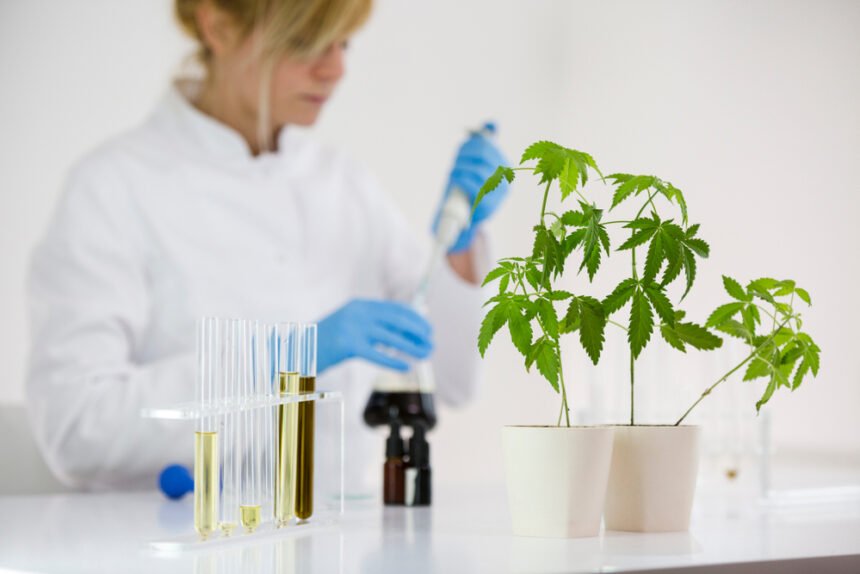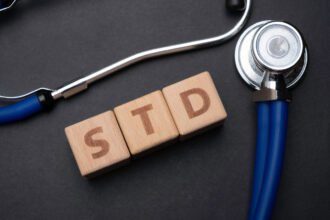The hemp and cannabis industry is booming. As restrictions relax, more and more research is emerging on potential benefits that the plant may hold. Cannabidiol, better known as CBD, is a particularly popular compound that’s garnered a lot of attention in recent years.
It’s been studied for its possible effectiveness for assisting with chronic pain, insomnia, and some childhood epilepsy symptoms.
What is CBD and When Was It Discovered?
CBD is one of roughly 113 known cannabinoids found in the Cannabis L plant (industrial hemp). Cannabinoids are the various chemical compounds that can be extracted from the hemp plants. Tetrahydrocannabinol, or THC, is another famous compound you’ve likely heard of. It’s what gives the psychoactive effects cannabis is most known for.
Unlike THC, CBD doesn’t have any effect on the user’s perception of reality. It is a non-intoxicating chemical that many people use for its possible therapeutic benefits. Since it comes from a plant, it is a phytocannabinoid. Our body also produces its own version of the chemical called endocannabinoids located within our endocannabinoid system (ECS). They help the body maintain homeostasis by encouraging healthy sleep, relaxed mood, and more regular body functions.
When extracted from hemp plants and manufactured into products such as sublingual tinctures or soft gel caps, CBD can be absorbed by the body into the endocannabinoid system. This can help you effectively achieve homeostasis and prolong its presence.
While CBD has been utilized for hundreds of years (if not thousands), it was first isolated by American chemist Roger Adam in 1942. He was also the first researcher to identify THC. In the beginning, scientists couldn’t accurately pinpoint which compounds were causing which effects. That is until Dr. Raphael Mechoulam identified the stereochemistry of CBD and THC in the 1960s.
It wasn’t until the Controlled Substances Therapeutic Research Act was passed in 1978 that CBD first saw its pathway into the healthcare system. Soon after, Dr. Mechoulam and his team conducted a study on how the compound would affect individuals with epilepsy. They found that half of their subjects stopped having seizures while the other half experienced a decrease in the frequency of their seizures.
Since cannabis was still so stigmatized, this breakthrough finding wasn’t made public and there wasn’t much progress made in making this treatment available until recent history.
Where Does CBD Stand Today?
Since Dr. Mechoulam’s landmark discovery, a lot of progress has been made. California became the first state to legalize medical marijuana in 1996. Oregon, Alaska, Washington, Maine, Hawaii, Nevada, and Colorado followed suit soon after. This opened up a world of possibilities for research into the plant’s therapeutic potential.
More people opened up to the idea of CBD and mounting research supported the possibility that it could be a useful treatment for a list of ailments. Personal success stories told of relief from conditions such as depression, anxiety, arthritis, insomnia, and more. However, there isn’t enough evidence to sustain these remarks as fact. To this day, CBD can’t be stated to cure, treat, or supplement anything.
The remarkable story of Charlotte Figi was an especially powerful testimony to the potential of CBD. She was born with a rare form of epilepsy called Dravet Syndrome. At the peak of her illness, she was experiencing around 300 seizures per week. By age four, she could barely walk, talk, or eat. Desperate, her parents turned to alternative therapies.
Amazingly, after Charlotte was administered a small dose of CBD, the seizes stopped for hours. They were thrilled. From that point on, her parents gave her doses of CBD. Her seizures were down to about 3 per month before she, unfortunately, passed reportedly due to COVID earlier this year (2020).
Charlotte’s story reverberated through the country, waking countless people up to the potential of this powerful plant compound. Since then, there’s been a boom in the production and availability of CBD. You can buy it in almost every state in the United States short of Idaho, North Dakota, Nebraska, and Iowa. Interest is mounting every passing year. In fact, the CBD market is projected to reach $22 billion by 2022.
The Future Of CBD in the Healthcare System
Though a lot of progress has been made in the quest to learn more about the full potential of CBD and other cannabinoids, there’s still plenty of ground to cover.
According to the 2018 Farm Bill, hemp-derived products are legal at a federal level. Additionally, CBD oil is no longer considered a Schedule 1 controlled-substance or drug. There’s even an approved prescription drug product to treat severe forms of epilepsy – Epidiolex. But the Food and Drug Administration still currently states that it’s illegal to market CBD as a food additive or dietary supplement.
Although the future is still nebulous in regards to what might happen on a legal level with CBD and other cannabis-derived products, there’s no doubt they will have a lasting slot in the healthcare industry. As research improves and stigma continues to dissipate, it’s only a matter of time before we truly unlock the potential of CBD.










